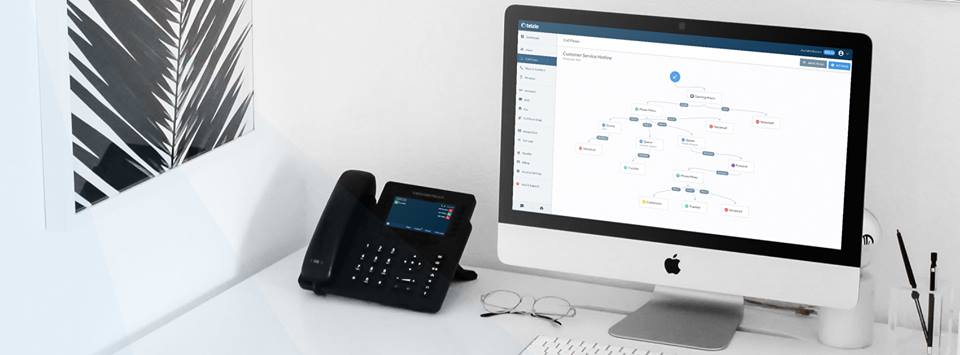Technology is advancing at an incredible rate. As we progress we see new technology consistently advancing becoming faster, more affordable and more efficient. The cloud is a prime example of this. Across the world, this technology has become prevalent in our everyday lives, whether we realize it or not. According to Forbes, The cloud computing market is projected to reach $411B by 2020.
In addition to this, advancements in this space are pushing the industry further, through the implementation of other components of technology which are also showing great promise. For example, Google has recently announced plans to bring a blockchain-like system to the cloud, this is expected to make the cloud safer and more efficient than before, according to Futurism.

In 2004, more than 90 percent of households in the U.S. had an operational landline phone – now it’s (significantly) less than 50 percent. This is not the first time communication technology has become obsolete (eg pagers, fax machines). How do you foresee the way we communicate change over the next 5 years in our personal lives?
I think we’ll see that the trend of using non-session-based communication forms such as Facebook Messenger, iMessage, SMS, Snapchat and the likes, will continue to evolve over the next 5 years. We’ll use less and less traditional one-to-one session-based communication, such as phone calls, skype call etc. for non-business related communincation.
In the long run, I see technologies like MR (Mixed Reality) evolve to a stage where it becomes deviceless. There are several companies who experiment with manipulating the electrical communication between the ear and eye and to the brain, and by that allowing for direct input without wearing a device like the Google Glasses for example.
There are also several experiments with reading brainwaves, to allow you to write without physically moving or saying anything. When these technologies are mature (~10 years from now), we will start seeing some really cool stuff. This will in time render devices like cell phones, entertainment systems in cars and even TVs obsolete.
Do you think this change will be reflected in the corporate world, or do you think it will go down a different path?
Better communication technologies will render certain technologies such as the desk phone obsolete, but the rate at which industries adapt will take longer than 10 years.
In the corporate world, various communication methods will merge into a central platform because it streamlines workflow and management. It’s easier to manage user access for one tool rather than 15 separate tools for different tasks. We’re already seeing this happening with platforms like HelpScout’s new live chat service and Zendesk Talk.
I understand that cloud prices have been falling in recent years. What do you think has been the reason for cloud prices becoming more affordable?
The main reason cloud prices are falling is because the barriers to entry are lower. There are more skilled web developers than ever before, the tools for software development have become more affordable (some of them free), and the programming languages have developed so it’s faster to produce something with a small team. Since a lot of cloud products don’t depend on third party services and special knowledge (for example helpdesk software), there is now more competition driving down prices. At the same time, the big established players have also created more competition between each other.
As for hosting, new players have emerged in the past 5 to 10 years, increasing competition. While it started out with being only AWS that had a solid product, there are now a number of other big companies like Google, Microsoft, and IBM competing for customers.
On top of that, as the number of cloud hosting locations increases, the cost to run them decreases.
You serve an impressive number of clients. Can you give an example of a company or case study that has really benefited from Telzio?
A recurring case study where we see customers really benefiting from our model is companies that have a lot of users, but where their usage is focused in only a few departments. One area where we pass through the benefits of being in the cloud is our user pricing model. Whereas our competitors charge per user, we do not. Our customers only pay for the usage they need, which frequently ends up saving them 30 to 50 percent in costs.
Have you had any constructive feedback from customers, and if so what are they interested in seeing?
Our early adopters are excited about our upcoming webphone launch.
Besides communication, are there other areas of technology that you are looking forward to seeing develop thanks to the cloud?
There isn’t much left to develop “thanks” to the cloud per say – that ship sailed about 10 years ago. Everything today is already “in the cloud”.
What I’m excited to see develop is the technology behind Mixed Reality. It’s possible that in 5 to 10 years virtual and augmented realities become “deviceless”. Imagine mobile phones becoming obsolete because the things you see on your screen would be wherever you look.
Here’s a video that explains it
Now imagine that coupled with AI, so it knows what you want to see, before you know it yourself.












